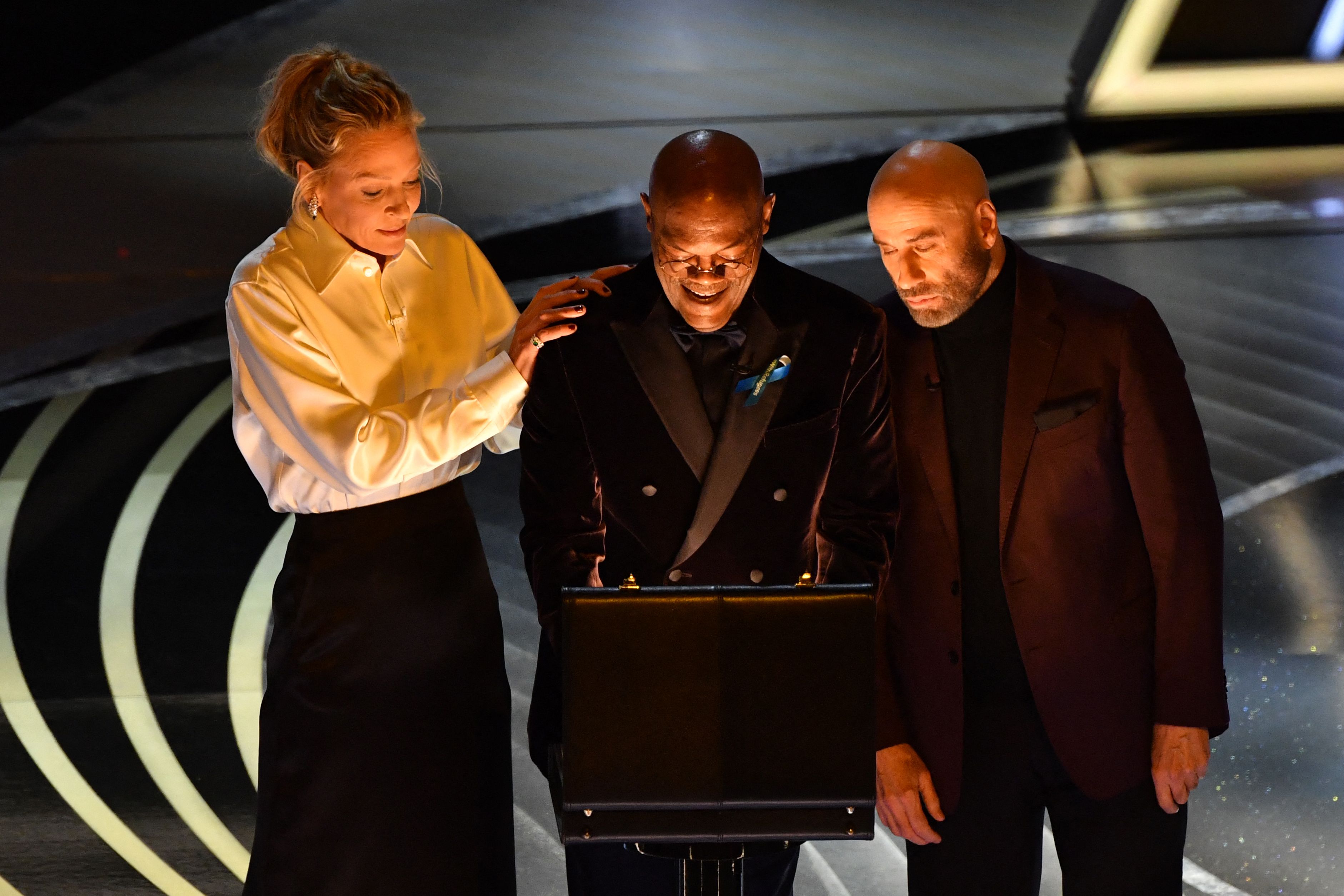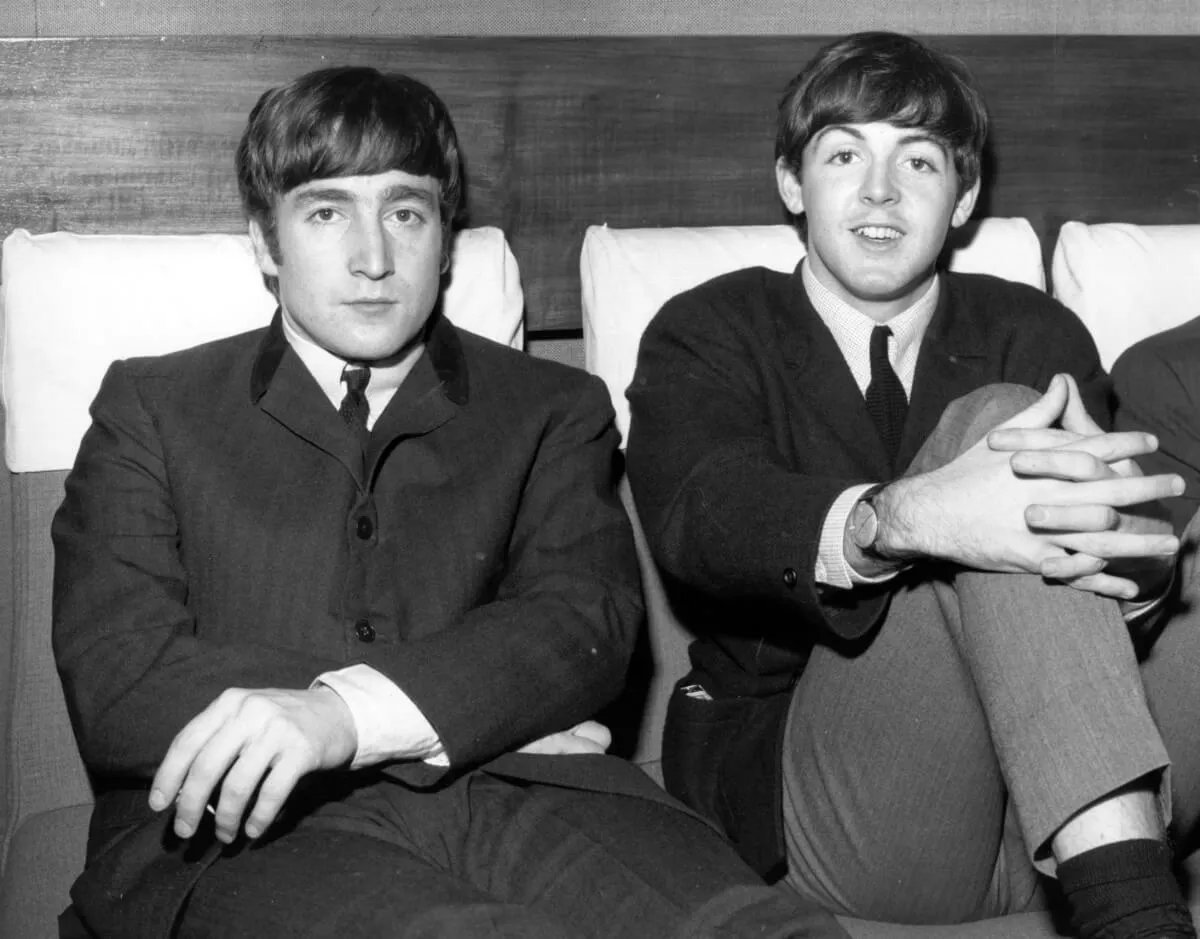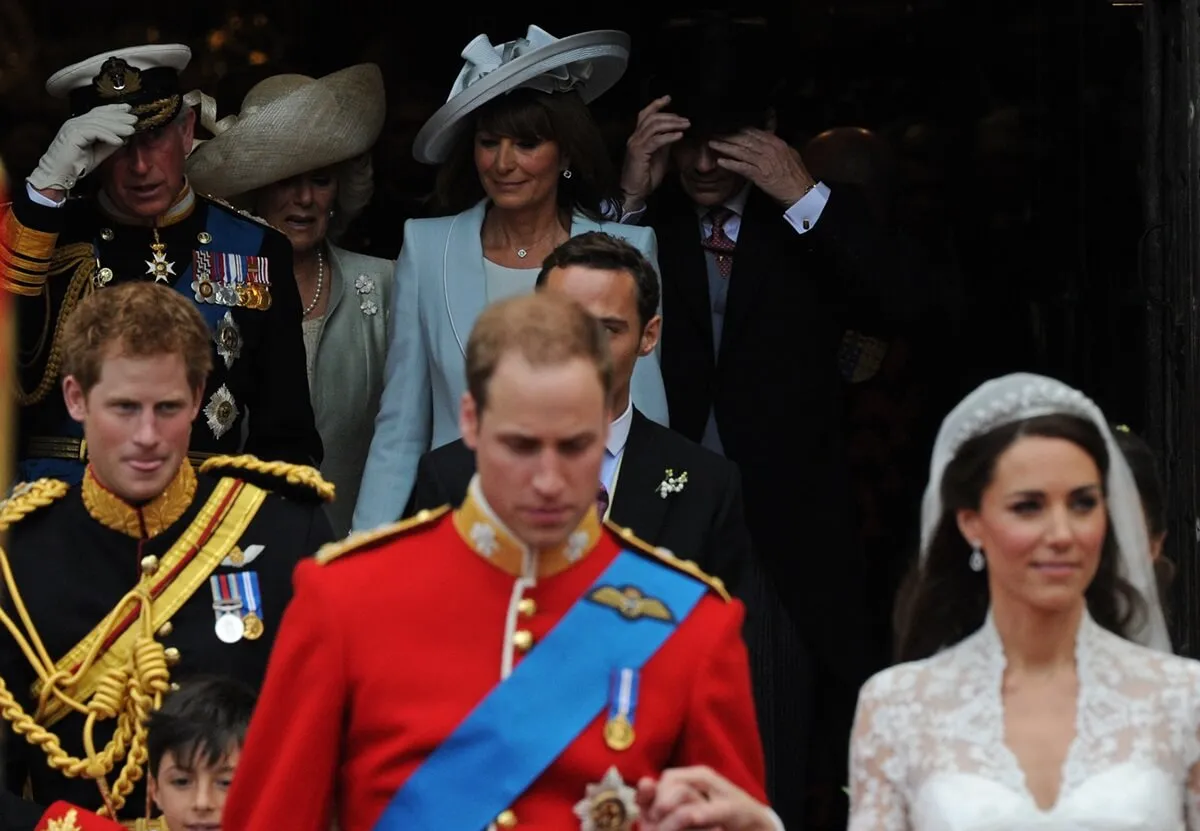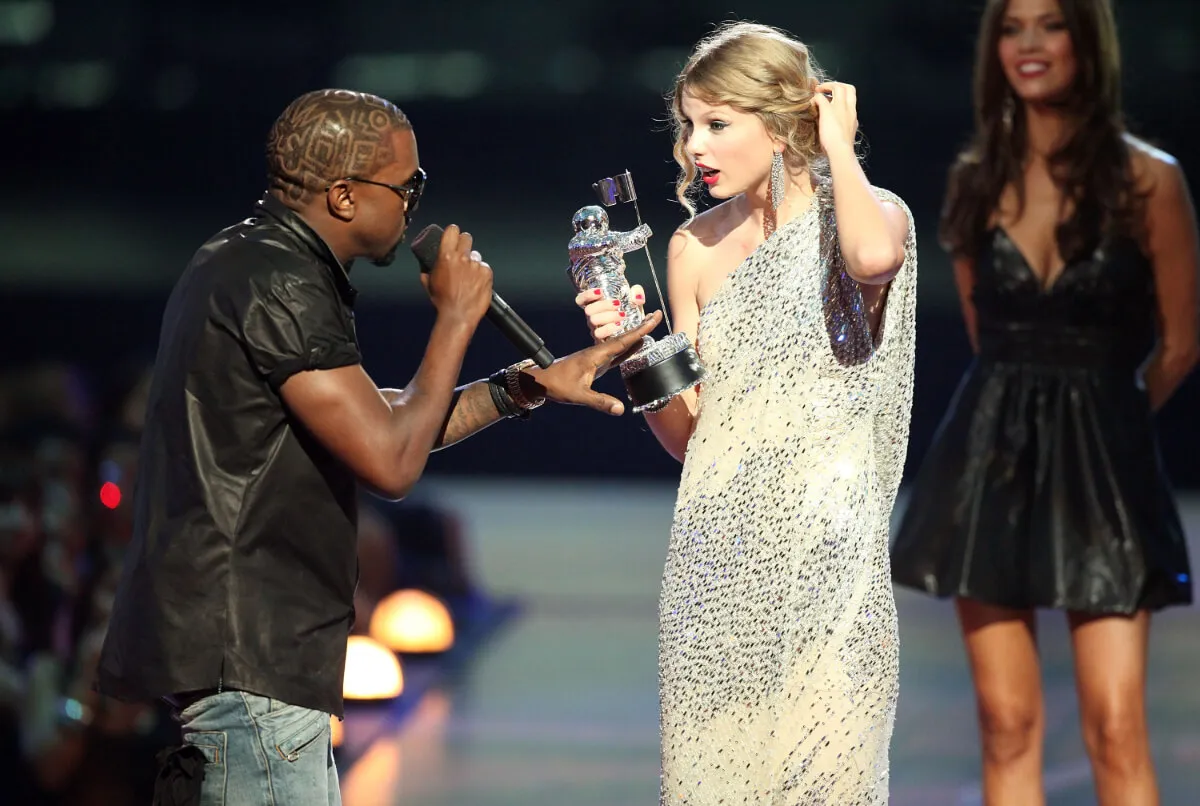Samuel L. Jackson’s Diner Scene in ‘Pulp Fiction’ Was Almost Way More Violent
While Samuel L. Jackson has been in over 140 movies, Pulp Fiction is still his most iconic. It’s endlessly quotable and his performance as Jules Winnfield is magnificent. Pulp Fiction is already a violent movie, as most Quentin Tarantino movies are. However, according to Jackson, the ending scene with him in the diner was supposed to be much more violent.
Jules Winnfield has an awakening in ‘Pulp Fiction’

At the beginning of Pulp Fiction, Jackson’s character is a relentless hitman. His first scene features him teasing a man before he kills him. However, he also shows that he is a deeply religious person, quoting the bible when he says “And you will know my name is the Lord when I lay my vengeance upon thee.”
The religious part of Winnfield conflicts with the hitman part of him after “divine intervention” saves him and Vincent Vega (John Travolta) from someone who shoots them point blank but somehow misses. When we get to the end of Pulp Fiction, Jackson is confronting Pumpkin (Tim Roth) and Honey Bunny (Amanda Plummer) who begin the film by attempting to rob the diner.
Unfortunately for them, they happen to be robbing the same diner Jules is at after the strange and eventful day he has had. Jules then holds Pumpkin at gunpoint where he explains to him why he’s not going to kill him, even though he would have a couple of hours ago. It’s a brilliant monologue from Jackson and ends Pulp Fiction on a satisfying, yet ambiguous note.
Samuel L. Jackson says the diner scene was originally way more violent
Jackson says that originally the script involved a vision sequence where he actually shot Roth and Hoffman before a cut showed that this was all in his head. In an interview on the Happy Sad Confused podcast, Jackson said that this scene was meant to show how much Jules had changed from the events in Pulp Fiction.
“In the diner, when Tim Roth asks me to open that briefcase when I do it, I shoot him in the face and shoot Honey Bunny off the counter,” Jackson told the podcast. “When I open my eyes, they’re still there, because that’s what I would have done before [Jules] had transitioned.”
Tarantino had a more “show don’t tell” approach and allowed the audience to make their own inferences about how Jules has changed based on his current actions and his dialogue. Of course, more violence would make sense for Tarantino, but it’s better that he kept this scene more subtle.
The diner scene in ‘Pulp Fiction’ is still Samuel L. Jackson’s favorite scene
In a 2019 interview with Esquire, Jackson reveals that the ending diner scene from Pulp Fiction is his favorite scene that he’s ever acted in. He recognizes that it’s one most of his fans would pick and he agrees with them. One of his favorite aspects of the scene is that it recontextualizes the epic speech that he gave earlier in the film.
“By the time Tim [Roth] gets there and I have an opportunity to do that speech again, the same speech that I’ve been killing people with, and make it make sense in a whole ’nother kind of way, and, one, it’s just the biggest threat you’ve ever heard in your life,” Jackson explained. “And the next, the dude’s like sitting there making a revelation about who he is and where his place is in the world, and who he actually is. He said, ‘I’d love to be the shepherd, and that would be great.’ They said that they didn’t know how the movie was supposed to end until I did that scene. But they had no idea that that’s what all that shit meant until I did it.”
Pulp Fiction continues to be an iconic film and the diner scene, along with Jackson’s performance, continue to be reasons why.


